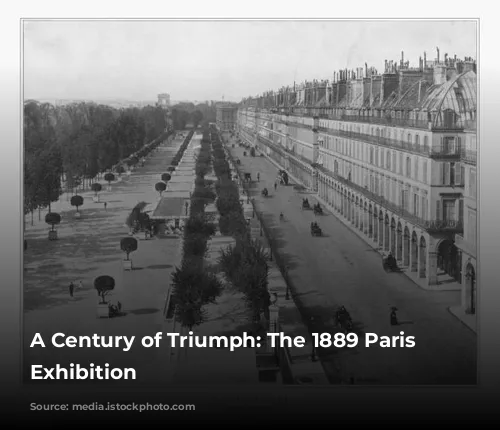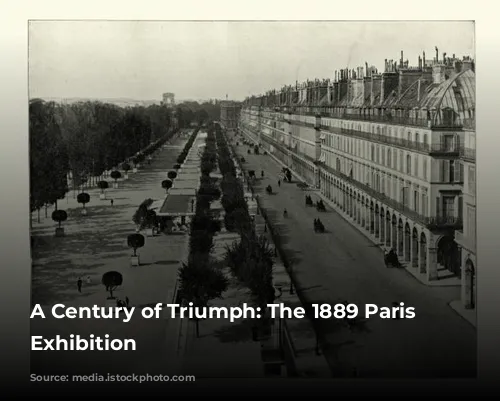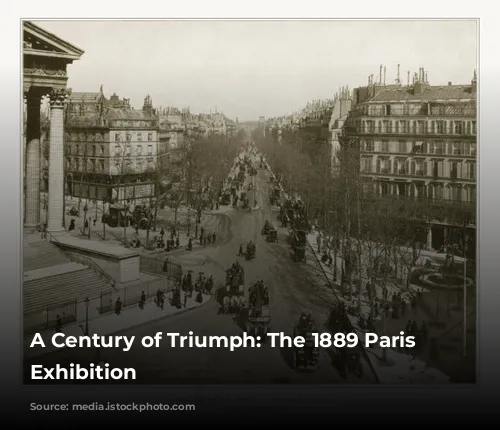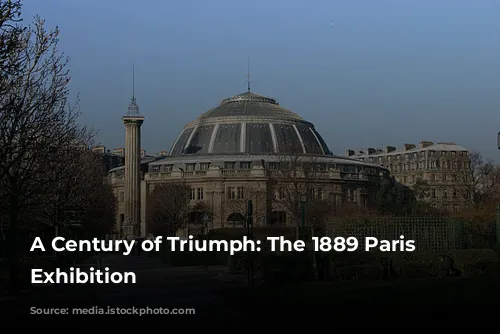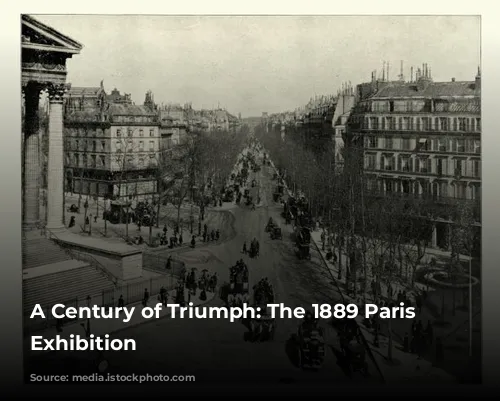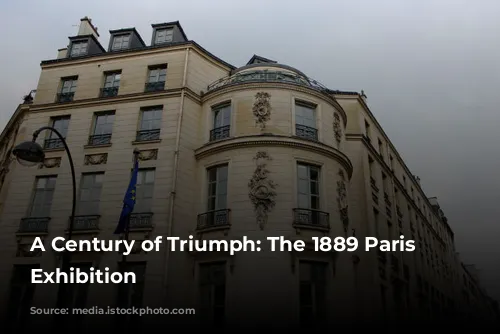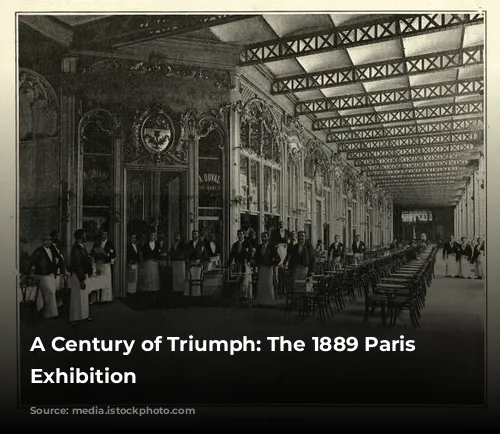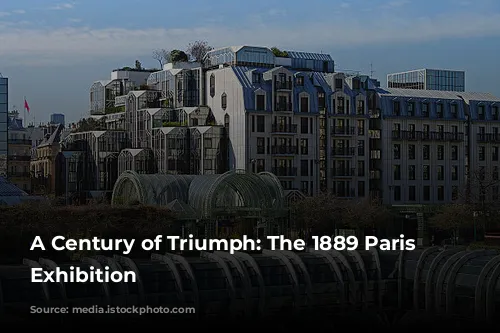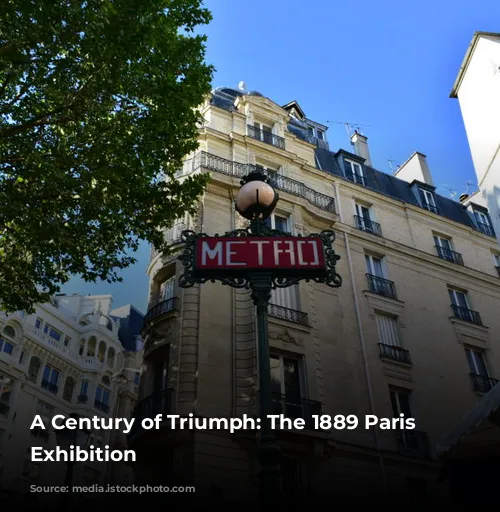The 1889 Universal Exhibition in Paris was a grand celebration marking the 100th anniversary of the French Revolution. It was a spectacle of innovation, showcasing the nation’s achievements and highlighting its burgeoning global power. This event, meticulously planned by the accomplished engineer Jean-Charles Alphand, a close associate of the renowned Baron Haussmann, aimed to showcase France’s remarkable progress in the wake of turbulent times.
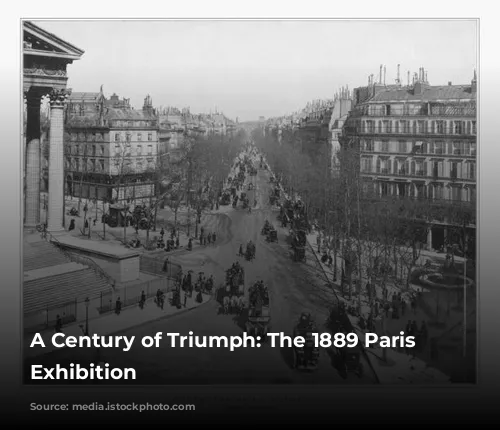
A Showcase of French Power and Progress
The exhibition was divided into several distinct areas. The Esplanade des Invalides hosted displays dedicated to France’s colonial possessions and its powerful military might. The Champs de Mars and the Palais du Trocadéro were the chosen venues for captivating displays of art and industry. A striking reconstruction of the Bastille, the symbol of France’s revolutionary spirit, served as a powerful reminder of the nation’s struggle for freedom.
The exhibition proudly displayed the fruits of France’s recent successes. After enduring the devastating Franco-Prussian War, the tumultuous Paris Commune, and a severe economic downturn, France had emerged as a formidable force on the world stage. Its vast colonial empire, its thriving industrial sector, and its renewed status as a major European power were all celebrated at this monumental event.
However, the exhibition’s grand ambitions were met with skepticism by some European monarchies. Many chose not to erect pavilions at the exhibition, signaling their disapproval of the Republic’s rise to power. This diplomatic snub provided an opportunity to showcase the rich cultures of other continents. The exhibition included a fascinating journey through human history, with meticulously recreated troglodyte caves, Neolithic lake villages, and dwellings from ancient civilizations around the world. This diverse display highlighted the interconnectedness of human history and celebrated the achievements of civilizations across the globe.
One innovative element of the 1889 exhibition was the introduction of a dedicated Pavilion for Children. This delightful space, designed to entertain and engage young audiences, was a direct response to the popular Women’s Pavilion at the 1876 Philadelphia World’s Fair.
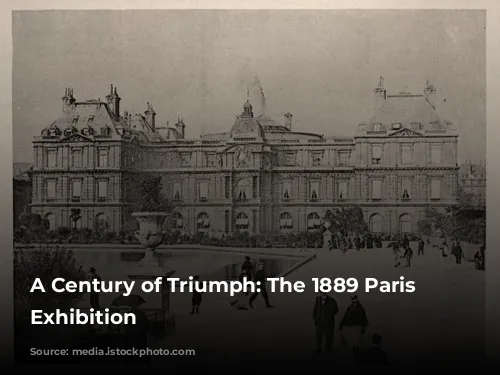
A Symphony of Metal and Glass
The 1889 Universal Exhibition was renowned for its impressive architectural feats. The use of metal structures allowed architects to experiment with bold and innovative forms, resulting in stunning displays of ingenuity. The Palais des Machines, a monumental structure designed by Dutert and Contamine, stood as a testament to the power of metal construction. This colossal hall boasted a single vault and a vast nave spanning a remarkable 77,000 square meters. Its immense glass surface, sourced from the renowned Saint-Gobain glassworks, bathed the interior in a luminous glow.
The Palais des Machines was a marvel of engineering, showcasing cutting-edge technology. Visitors were amazed by Dayex’s voting machines, atmospheric hammers, cigarette-making machines, Tissot clockmaking workshops, phonographs, and telephones. The exhibition provided a glimpse into the future, showcasing the transformative power of technology and its impact on daily life.
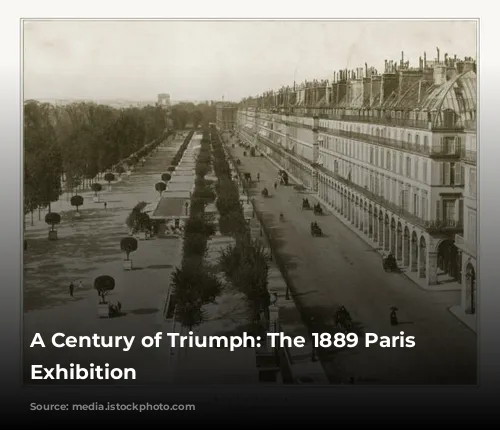
The Eiffel Tower: A Symbol of Progress and Controversy
The Eiffel Tower, a towering symbol of the exhibition and a testament to Gustave Eiffel’s ingenuity, became an instant sensation. At 324 meters tall, it was the highest structure in the world, a daring feat of engineering that pushed the boundaries of architectural design.
Despite its undeniable splendor, the tower was met with criticism from some quarters. A group of prominent artists, including painters, architects, writers, and sculptors, signed a petition vehemently opposing the tower’s construction. They deemed it a “useless and monstrous” structure, a blight on the city’s landscape.
However, the public’s fascination with the tower quickly eclipsed the criticisms. Millions of visitors flocked to the exhibition, with an average of 12,000 people ascending the tower each day. The illuminated tower, adorned with gas burners, cast a mesmerizing glow over the cityscape, transforming the night sky into a spectacle of light. The Eiffel Tower’s unparalleled panoramic views of Paris, a novelty in an era before the widespread use of airplanes, drew visitors in droves.
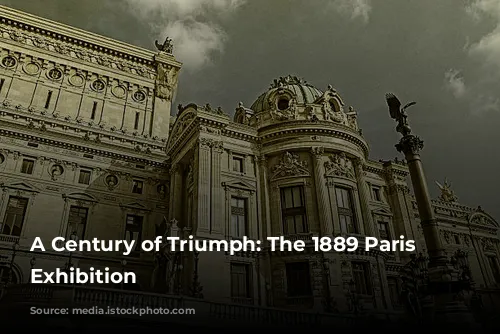
A Celebration of Technology and Transportation
The exhibition was not only a showcase of architectural brilliance but also a celebration of transportation innovation. The Decauville railway, a testament to 19th-century technological advancements, transported visitors across a distance of 3 kilometers between the Champs de Mars and the Invalides. This innovative railway system provided a seamless and efficient way to navigate the sprawling exhibition grounds.
The exhibition was brilliantly illuminated thanks to the efforts of Hippolyte Fontaine, who implemented the largest known electric lighting installation at the time. The Expo’s dazzling display of lights extended the visitor experience into the evening, offering a captivating spectacle until midnight. The Luminous Fountain of Coutan, a mesmerizing display of light and water, was a particular highlight. Its vibrant colors danced to the music of the accompanying orchestra, captivating audiences with its enchanting performance.
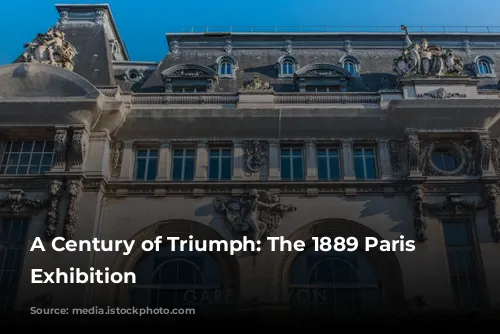
A Tapestry of Art and Design
The 1889 Universal Exhibition celebrated the achievements of decorative arts, showcasing the mastery of French craftsmanship. Separate pavilions were dedicated to national manufactures, ceramics, furniture, goldsmithery, jewelry, and more. The renowned Manufacture of Sèvres, under the direction of the talented Carrier-Belleuse, presented a captivating display of its exquisite ceramics. The exhibition also highlighted the work of other prestigious French manufacturers, including the Gobelins, Beauvais, and La Mosaïque.
Carrier-Belleuse, a renowned artist and designer, exhibited a collection of his exquisite models, which breathed new life into the Sèvres factory’s style. At the Goldsmith’s Gallery, Christofle displayed elegant models by prominent artists such as Mercié, Coutan, and Delaplanche. The Art Bronzes Gallery showcased a striking monumental vase by Rindel d’Illzach, inspired by the Symbolist movement. Its intricate details and evocative design captured the attention of visitors.
The Furniture Gallery celebrated the enduring elegance of Louis XV and Renaissance styles. A cabinet designed by Paul Sédille, carved by Allar, and adorned with enamels inspired by the Symbolist painter Olivier Merson, earned a prestigious gold medal.
The 1889 exhibition marked a turning point in the artistic landscape, ushering in a new era of artistic expression. The School of Nancy, a pioneering force in the Art Nouveau movement in France, saw several of its members recognized for their innovative work. Talented artists such as Emile Gallé, Emile Friant, and Victor Prouvé showcased their unique artistic vision, heralding a new era of design and aesthetics.
The 1889 Universal Exhibition in Paris was a triumph of innovation, creativity, and national pride. It showcased France’s remarkable progress, its blossoming industrial sector, and its artistic excellence. From the towering Eiffel Tower to the mesmerizing Luminous Fountain of Coutan, the exhibition offered visitors a captivating journey through technology, architecture, art, and design. It left an indelible mark on the cultural landscape of Paris, cementing its place as a global hub of innovation and inspiration.
